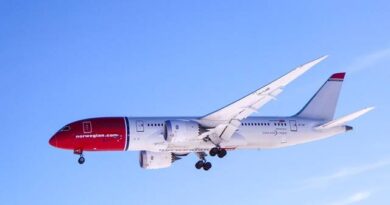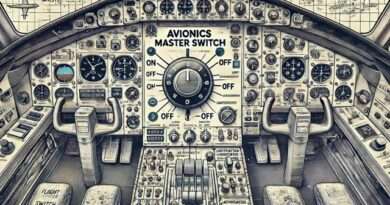Navigating the Skies with Machine Learning: Predicting the Future in Aviation
The aviation industry is constantly evolving, and machine learning is playing an increasingly important role in shaping its future. By analyzing vast amounts of data, machine learning algorithms can identify patterns and make predictions that can help airlines, airports, and other aviation stakeholders improve efficiency, safety, and customer satisfaction.
One of the most promising applications of machine learning in aviation is predictive maintenance. By analyzing data from sensors on aircraft, machine learning algorithms can predict when components are likely to fail, allowing airlines to schedule maintenance proactively and avoid costly and disruptive breakdowns. This can save airlines money and reduce the risk of accidents.
Machine learning is also being used to improve weather forecasting for aviation. By analyzing data from weather stations, satellites, and radar, machine learning algorithms can provide more accurate and timely forecasts of weather conditions, which can help airlines plan their routes and avoid hazardous weather. This can improve safety and reduce delays.
Another area where machine learning is making a difference in aviation is passenger analytics. Airlines are using machine learning to analyze passenger data to understand their preferences and behaviors. This information can be used to improve customer service, personalize marketing campaigns, and develop new products and services.
In addition to these specific applications, machine learning is also being used to improve a wide range of other aviation operations, including air traffic management, fuel optimization, and security.

Benefits of using machine learning in aviation
There are many benefits to using machine learning in aviation. Some of the most important benefits include:
- Improved efficiency: Machine learning can help airlines and other aviation stakeholders to operate more efficiently by automating tasks, making better decisions, and reducing waste.
- Increased safety: Machine learning can help to improve safety in aviation by identifying potential hazards, making better predictions about weather conditions, and reducing the risk of human error.
- Enhanced customer satisfaction: Machine learning can help to improve customer satisfaction by providing personalized services, making travel more convenient, and reducing delays.
The future of machine learning in aviation
Machine learning is still a relatively new technology, but it has the potential to revolutionize the aviation industry. As machine learning algorithms become more sophisticated and data becomes more readily available, we can expect to see even more applications of machine learning in aviation in the years to come.
Here are some specific examples of how machine learning is likely to be used in aviation in the future:
- Predictive maintenance: Machine learning will be used to predict failures in aircraft components even further in advance, allowing airlines to schedule maintenance with even greater precision.
- Weather forecasting: Machine learning will be used to provide even more accurate and timely forecasts of weather conditions, which will help airlines plan their routes even more effectively.
- Passenger analytics: Machine learning will be used to gain even deeper insights into passenger preferences and behaviors, which will enable airlines to provide even more personalized services and develop even more innovative products and services.
Machine learning is a powerful tool that can help to improve the aviation industry in many ways. As machine learning technology continues to develop, we can expect to see even more innovative applications of machine learning in aviation in the years to come.
Conclusion
Machine learning is already having a significant impact on the aviation industry, and its importance is only going to grow in the years to come. By harnessing the power of machine learning, airlines and other aviation stakeholders can improve efficiency, safety, and customer satisfaction. Machine learning is truly revolutionizing the way we fly.
References:
How Machine Learning is Transforming the Future of Aviation” by Forbes (https://www.forbes.com/sites/forbestechcouncil/2023/02/27/how-machine-learning-will-transform-your-industry/)
“The Future of Aviation is Powered by Machine Learning” by McKinsey & Company (https://www.mckinsey.com/capabilities/operations/our-insights/smart-operators-how-leading-companies-use-machine-intelligence)
“How Machine Learning is Revolutionizing the Airline Industry” by Accenture (https://www.accenture.com/_acnmedia/pdf-69/accenture-reworking-the-revolution-jan-2018-pov.pdf)
“Machine Learning in Aviation: A Comprehensive Overview” by Skybrary (https://www.skybrary.aero/)
“The Impact of Machine Learning on the Aviation Industry” by SAS (https://www.sas.com/en/whitepapers/machine-learning-landscape-109909.html)


